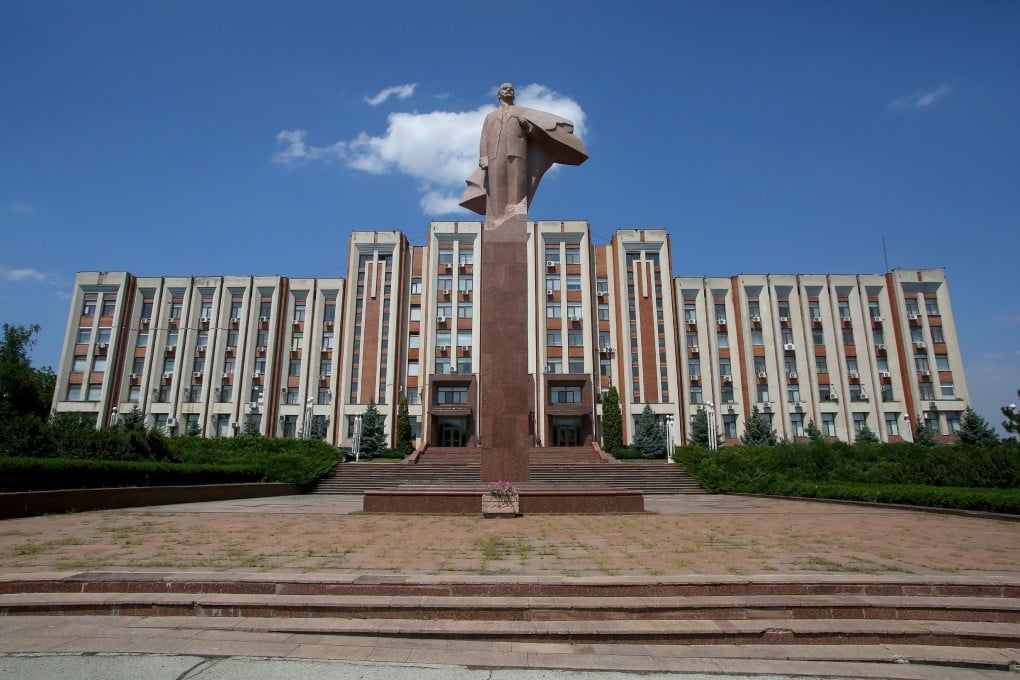Exploring Moldova, Europe’s poorest and least visited country, where Soviet communism has made a last stand
- Known for its wine, Moldova, austere and landlocked, welcomes fewer visitors than any other country in Europe
- In Stalinist Transnistria, an unofficial state carved out of the country, there is a police officer for every citizen

The train from Romania enters Moldova as I finish breakfast in a restaurant car that looks like my grandmother’s front room: a window framed by heavy purple fluted curtains, silk flowers, a faint smell of cigarettes and orange formica tables spread with buttered white bread, instant coffee, thick slices of garishly pink salami and glasses of orange squash as fluorescent as the table on which they stand.
Drab concrete outskirts and the slowing of the train to a crawl announce our imminent arrival in Chisinau.
I’ve heard nothing but bad things about the ugly Soviet-era capital of Europe’s poorest nation, with the fewest tourists on the continent, but, as I walk in the shade of poplar trees from the station up the gentle slope of Strada Columna to Cathedral Park, I take an instant liking to it.
Clanking yellow trolley buses, connected to wires, hum, spark and rattle past at barely more than walking pace as I stop at a roadside stall to supplement my train buffet with a bowl of mamaliga. This cornmeal porridge is Moldova’s most famous dish, garnished with sour cream that tastes of the farmyard and dill (in Eastern Europe, most food is garnished with dill).
The massive Cosmos Hotel, on Negruzzi Square, is a 332-room skyscraper that was the last word in Soviet luxury when it was built, in 1982. Brown velour chairs perch uncomfortably in one corner of an expansive, underused lobby. The receptionist, dressed head to toe in nylon, is asleep beneath a panel of dusty flags and analogue clocks that tell the wrong time in a variety of cities worldwide.